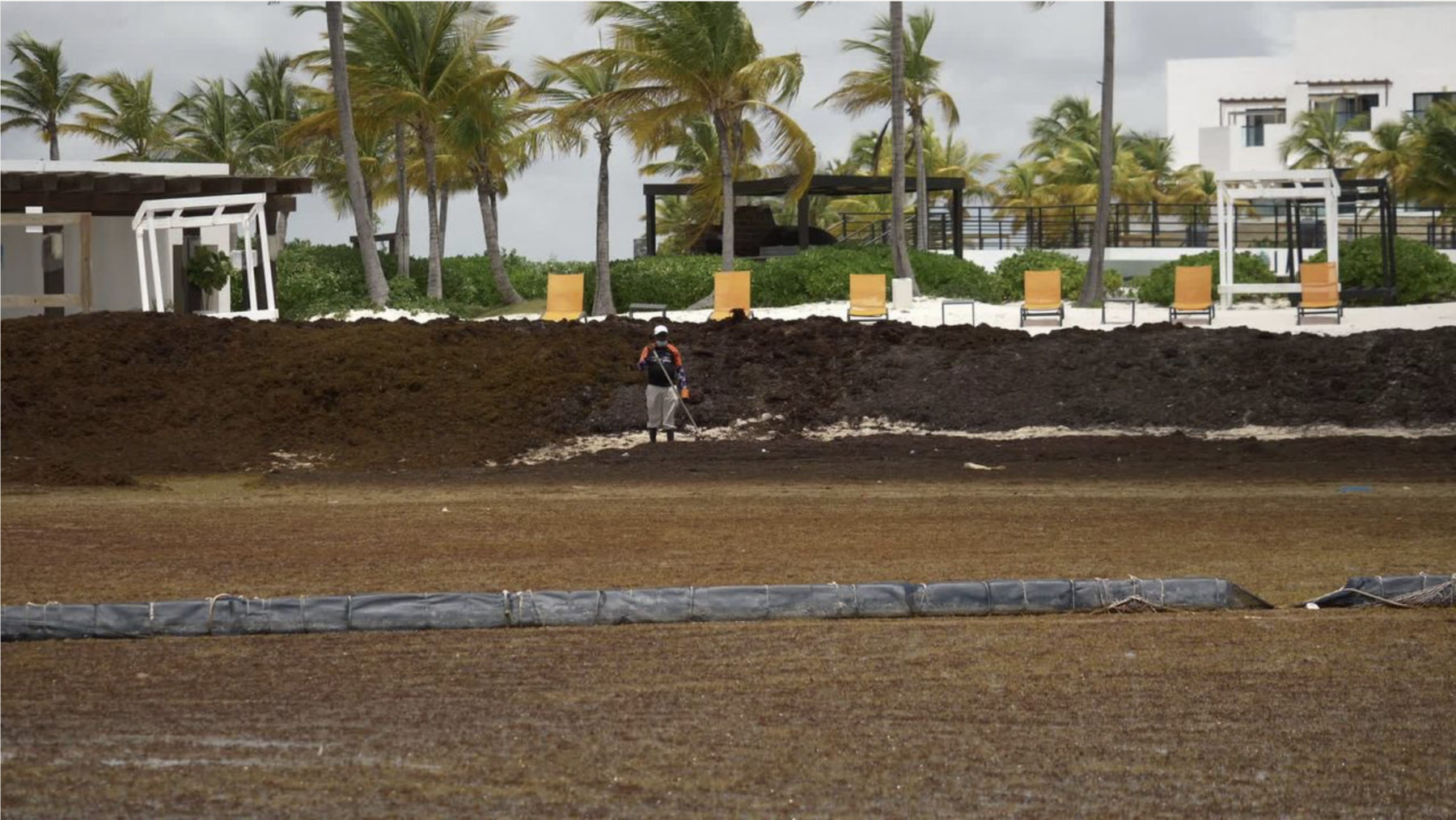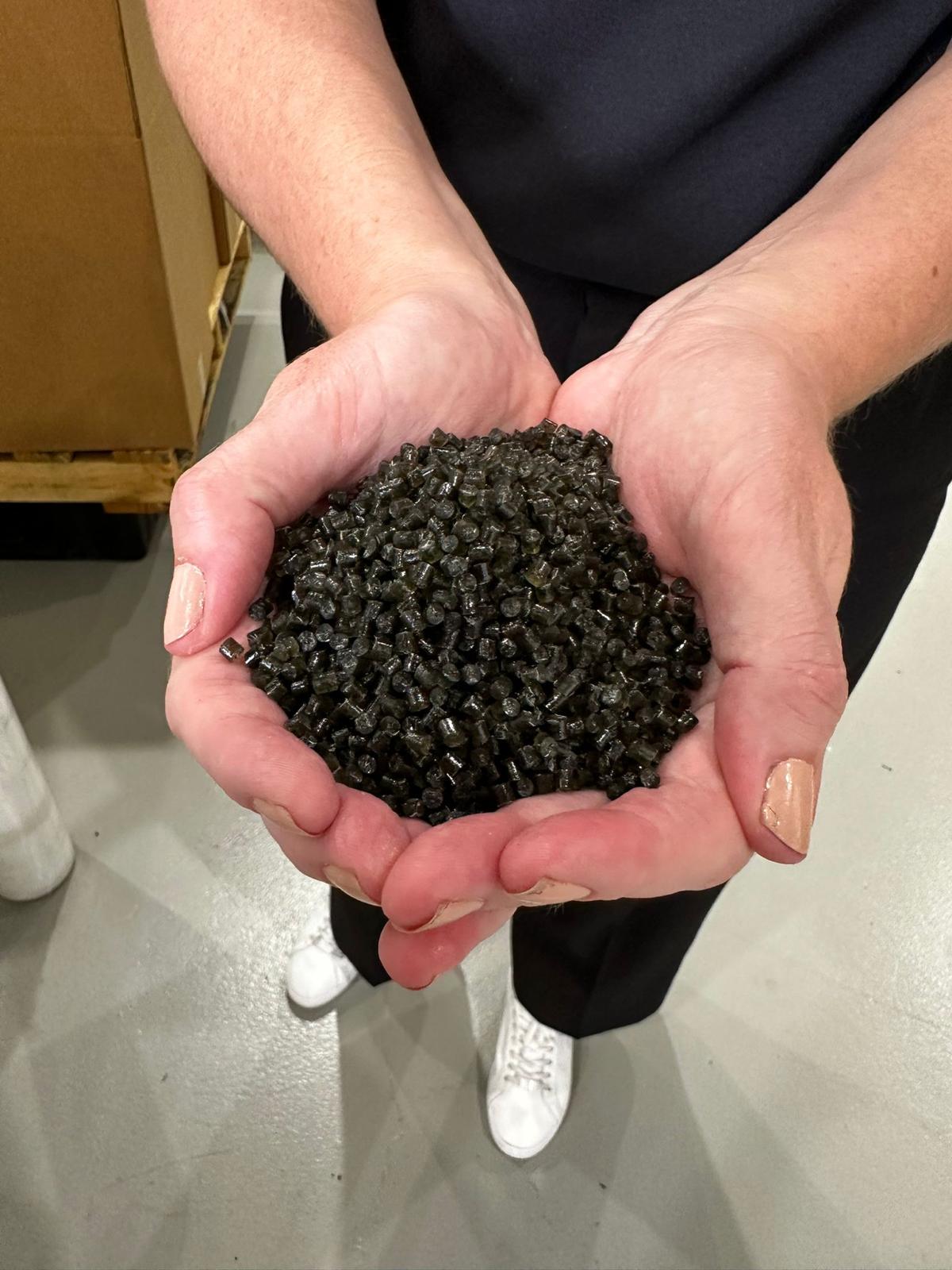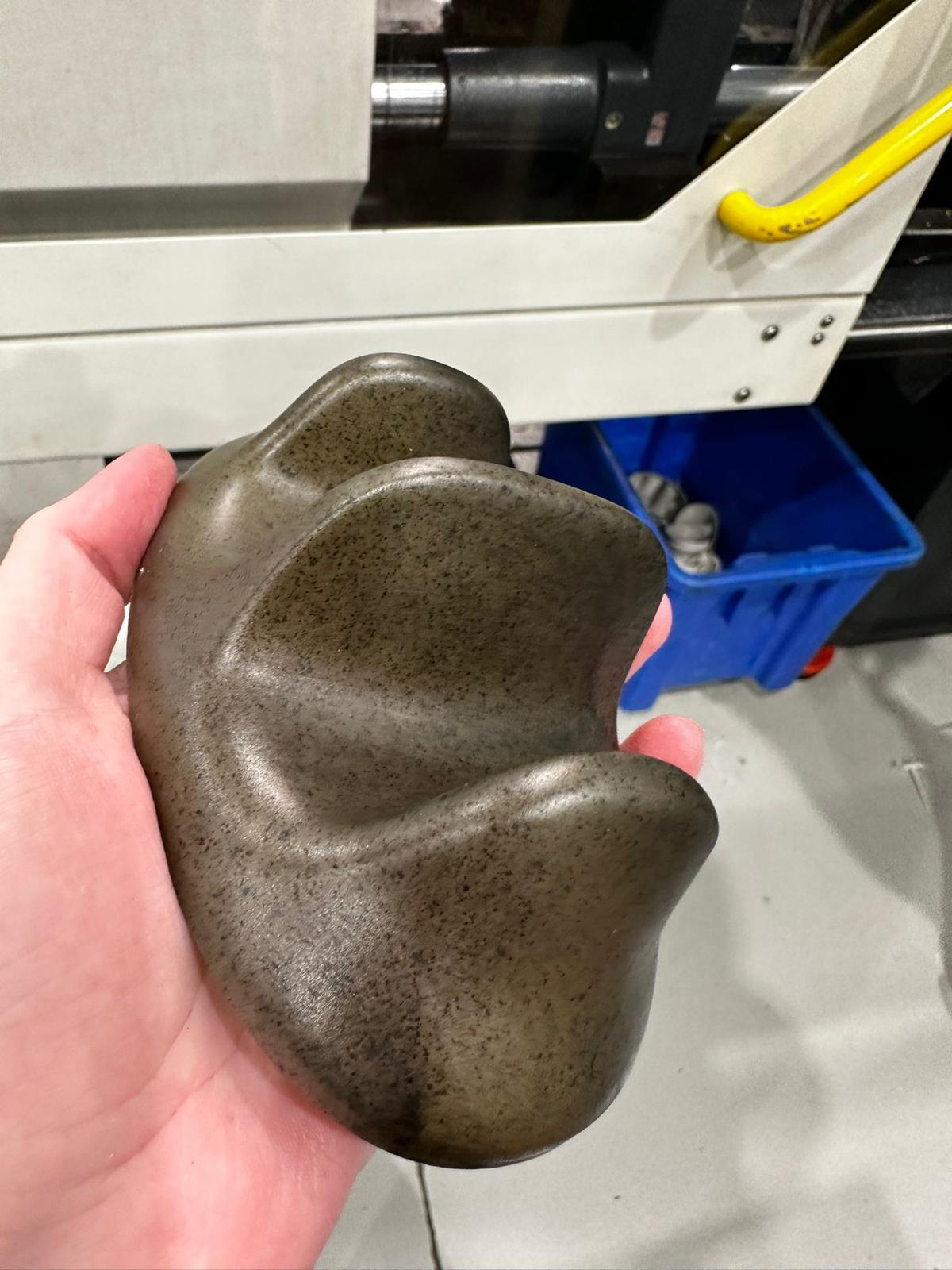Meet Kelpy, the deep tech startup swapping single-use plastics for seaweed

In the era of climate blues and eco-anxiety, Australia’s up-and-coming “deep tech” startups are offering science-based solutions to some of the world’s biggest problems. Two dozen of Australia’s deep tech startups will showcase their world-changing innovations at the upcoming Cicada x Tech23 conference, Australia’s longest-running annual deep technology conference.
Among them is Fionnuala Quin, founder and CEO of Kelpy, a startup that makes bioplastic pellets from seaweed. These bioderived pellets can replicate both soft and rigid plastics, from sachets and films to shampoo bottles, food containers, cosmetic packaging and more. But the cherry on top is that Kelpy’s seaweed pellets can be used in existing machinery.
“The pellet can be dropped into standard plastic manufacturing equipment and be injection moulded or extruded into blown films, so we can create rigid and flexible applications,” says Fionnuala. “That was sort of the big breakthrough.”
It means manufacturers don’t need to upgrade or replace their equipment, just simply swap out their fossil fuel-derived plastic pellets for Kelpy’s seaweed alternative.
Since its launch in March 2021, Kelpy has captured the attention of manufacturing giants Colgate-Palmolive and Unilever. Fionnuala’s team is currently in commercial trials with Palmolive to ensure the technology is fit the for the market.
“We’ve been working with [Palmolive’s] technical teams since late last year to basically road test our innovation in an industrial setting, to validate that we can scale using traditional moulds and equipment,” she says. “Our team has come a long way really fast. We’ve had huge success in pushing the science forward, but one of the challenges [is] to make sure we have ready partners that can supply the volumes required for a new material like this.”
Kelpy uses seaweeds that are regeneratively farmed or invasive. The material is ethically sourced from all over the world, with Fionnuala flying out to meet partners and see how the seaweed is grown and harvested.
“It’s exciting because [seaweed] is something that’s available to coastal communities everywhere,” she says. “We focus specifically on seaweeds that are low-cost and abundant, and that includes invasive seaweeds and ones that are easy to grow and scale up in communities. A lot of seaweeds are high value food in the food industry, so taking them would cause food security issues.”
Alongside replacing plastics, Kelpy endeavours to uplift coastal communities by ensuring the value chains are fair and equitable. It’s an area that Fionnuala is passionate about, herself being the daughter of a fisherman who grew up in a small crayfishing town in Western Australia.
On 26 July 2023, Fionnuala will present at the Cicada x Tech23 conference in Sydney. She’ll be joined by 22 other “deep tech” startups, which were drawn from more than 130 applications across Australia.
“Deep tech” are companies with business models centred around significant advances in science or engineering. They have the potential to disrupt the market by pairing radical innovation – nanotechnology, artificial intelligence, synthetic biology and more – with brave ideas, from putting an end to waste to building more sustainable and biodiverse cities.

“To really understand the impact of deep tech ventures, we must think systematically, not through niches of technology or individual industries,” says Sally-Ann Williams, CEO of Cicada Innovations. “These ventures often utilise or develop innovations in fields such as AI, biotech, robotics, quantum, and it’s rare for these innovations to have applications in one sector alone, such as aerospace or medicine…At Cicada x Tech23, we want to spark this meaningful conversation and ask questions that urge us all to dream big, imagine new holistic approaches and think in systems, not silos.”
Other startups at the conference include Samsara Eco – whose enzyme-based technology can break down plastics – and Kapture, which has developed carbon capture and storage technology that can be retrofitted to 120 million commercial diesel generators.
For more information about the event, visit cicadainnovations.com/cicada-x-tech2








